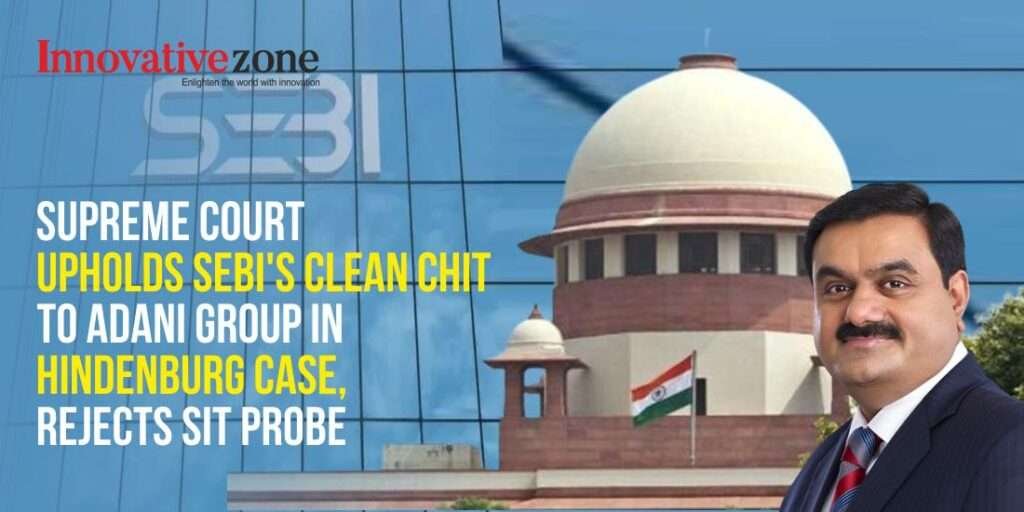Supreme Court Upholds SEBI’s Clean Chit to Adani Group in Hindenburg Case, Rejects SIT Probe
Written by Sanjay Kumar
News Highlights
- Supreme Court supports SEBI’s clean chit in Hindenburg case, dismissing external doubts.
- No SIT Probe: SC rejects special team, lets SEBI continue its investigation into 22 cases.
- Court emphasizes concrete evidence, warns against relying solely on third-party reports to question SEBI.
Adani Group
Multinational conglomerate company
- Type – Corporate group
- Industry – Conglomerate
- Founded – 20 July 1988; 35 years ago
- Founder – Gautam Adani
- Headquarters – Ahmedabad, Gujarat, India
- Area served – Worldwide
- Key people – Gautam Adani (Chairman)
- Number of employees – ~29,200+ (2023)
In a significant legal development, the Supreme Court delivered a major victory to the Adani Group on Wednesday (January 3), affirming the Securities and Exchange Board of India’s (SEBI) clean chit in the Hindenburg case. The court dismissed doubts raised by the George Soros-led Organized Crime and Corruption Reporting Project (OCCRP), asserting that its report cannot serve as the basis for questioning SEBI’s investigation.
The judgment was pronounced by a bench comprising Chief Justice of India DY Chandrachud and justices JB Pardiwala and Manoj Misra. The apex court ruled that there were no sufficient grounds to transfer the probe to a special investigation team (SIT).
SEBI, the capital markets regulator, had already investigated 22 out of the 24 cases related to the allegations made by the US-based short seller Hindenburg Research. The Supreme Court granted SEBI three months to conclude its investigation in the remaining two cases.
Additionally, the court directed the government and SEBI to examine whether Hindenburg Research violated market shorting rules and instructed them to take appropriate action if any wrongdoing is found.
The Supreme Court, in its pronouncement, emphasized the need to rely on concrete evidence rather than third-party reports and newspaper articles to question a statutory regulator like SEBI. It stated, “Reliance on newspaper reports and third-party organisations to question the statutory regulator (SEBI) does not inspire confidence. They can be treated as inputs but not conclusive evidence to doubt SEBI’s probe.”
The court further underscored the importance of upholding public interest jurisprudence, emphasizing that petitions lacking adequate research and relying on unsubstantiated reports cannot be accepted. It clarified that such reports may be considered as inputs but cannot be the sole basis for challenging regulatory investigations.
This ruling reinforces the confidence in SEBI’s investigative processes and sets a precedent against the unquestioned acceptance of third-party reports in legal proceedings. The Adani Group, relieved by the court’s decision, can now focus on its business operations without the cloud of uncertainty surrounding the Hindenburg case.


